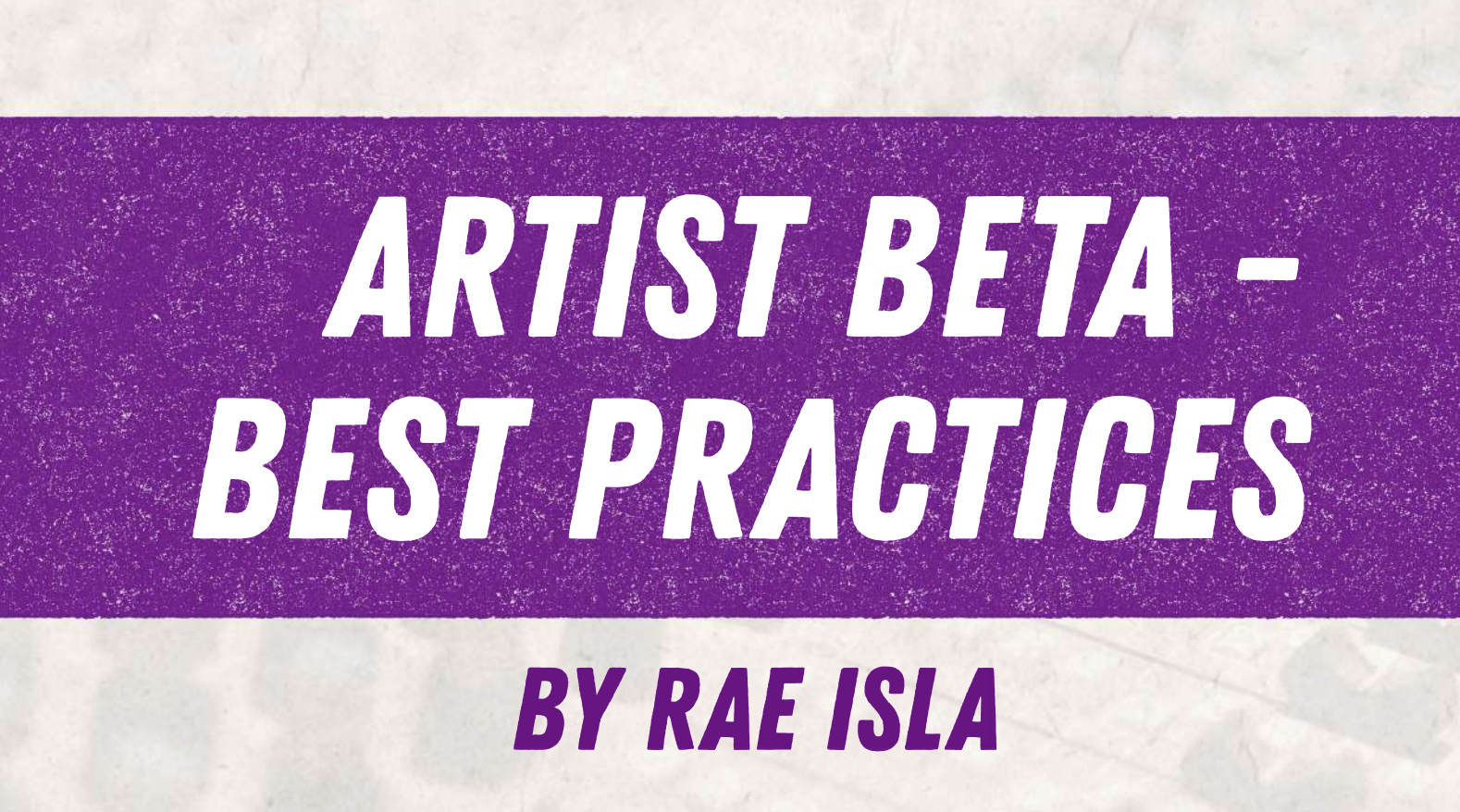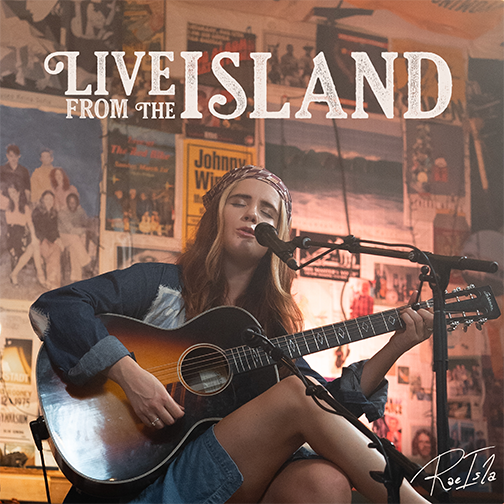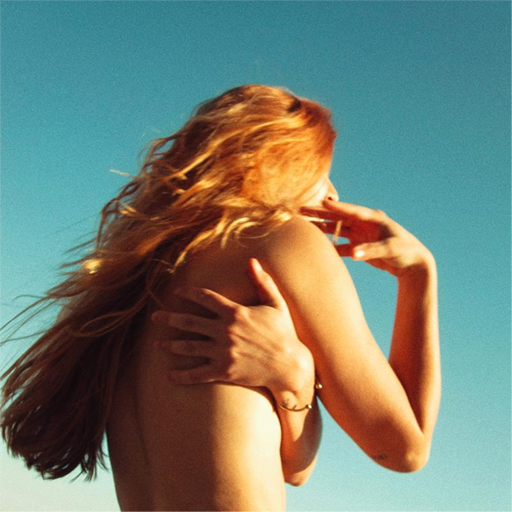Liner Notes: Laura Burhenn of Mynabirds


Get this guide as a free PDF! Click here to download.
Schedule an artist onboarding session with the Harmonic team! Sign up here.
Greetings, artist!
We're so excited to have you in Harmonic's Private Artist Beta. Harmonic is here to bring back what's missing from today's music streaming platforms: human curation, meaningful revenue for artists, intentional listening, and real community.
This guide is full of tips and best practices to help you craft releases that connect with music superfans. (Spoiler: it's not just about studio albums.)
Thank you for joining us at this early stage. With your participation, we're building a platform that truly supports artists and the people who love their music.
Unreleased demos, B-sides from albums, brand new songs that you communicate are exclusively on Harmonic and therefore scarce and precious. Maybe only available for a limited time.

Example: Abigael Elizabeth - unreleased demo of “Mammoth Song”
The only recording of “Mammoth Song,” available exclusively on Harmonic for a limited time while the artist finishes her debut album.
Priced High (relative to your audience). $5 or more.
Live, alternate, or demo recordings of released work. These help you world-build and contextualize your work. The story can be about your process and decision-making, revealing skills and interests you have that fans may not be aware of.

Example: Rae Isla - Live from the Island
One-take raw recordings of songs from Rae’s New Frontier album, filmed and recorded on an island in the Pacific Northwest. This live album is only available on YouTube to watch, and Harmonic to download.
Priced Mid (relative to your audience). $1 or more per song.
Releases available elsewhere that fans are familiar with, can purchase for a lower cost, and use to generate reviews and start a conversation.

Example: Summer Winter - new single “Naked”
Harmonic is the only place you can listen to this song in its original lossless audio format, while supporting the artist’s career directly.
Priced Low (relative to your audience). $1 or more.
Value Proposition is why someone should buy your work. Focus on what makes it valuable to them, not to you.
Utility is another word for “perk” or “reward” and adds additional value beyond what a fan is purchasing. Adding extra value is exciting for fans and helps you deepen your relationship with them while expanding your artistic offerings.
Example: Abigael Elizabeth - unreleased demo “Mammoth Song”
The first ever recording of “Mammoth Song,” available only on Harmonic for a limited time. Get a taste of Abigael’s debut album before anyone else.
Utility Idea: Receive a video explaining her process of learning to become a music producer.
Example: Rae Isla - “Live from the Island” album
This live album is only available as a full 11-song set on Harmonic and includes raw B-roll audio.
Utility Idea: Receive a link to all the behind-the-scenes photos from the shoot.
Example: Summer Winter - new single “Naked”
Support Summer directly by purchasing her song. Get to share your opinion with her and a community of active music lovers.
Utility Idea: Receive a PDF of the handwritten lyric sheet.
Challenge: In your own words, write down one Value Proposition and one Utility for each release type of your music — Scarce, Alternate, and Master.
The great thing about being an independent artist, especially when starting out or before you’ve gotten “big,” is that you likely have a direct line of communication to the fans that are most interested in your career.
The internet makes us feel disconnected, but in reality, you could send a DM or an email or a text to your biggest fans right now, and have them respond. So let’s try it: Go to your preferred social media channel and message (in your own words):
Hey [FAN NAME], just wanted to say I see you liking my posts and sharing my songs, and I really appreciate it. Can’t wait to keep sharing new songs with you.
I guarantee they’ll be excited by the message and ready for whatever you communicate next.
Now imagine if you had this kind of dialogue with 10, 100, or 1,000 fans? If you get in the habit of communicating with your audience like they’re people (because they are), then you’ll never lose the ability to offer them or ask them for things directly — the essence of an artist’s job.
Food for thought about social media vs. collecting phone numbers and email addresses: When you contact a fan directly, it goes directly to the person you’re trying to reach. When you post something to the algorithm, forces well beyond your control decide whether it’ll even reach anyone.
A few good tools to start collecting emails/phone numbers are Laylo and Mailchimp (paid) or good old-fashioned Google sheets (free).

Challenge: Write down the names and contact info (social media handle, email, text, etc.) for five people you consider fans. Send them thank-you notes.
No one knows your audience better than you.
“[FAN NAME]! I’m really excited about something... I’ve been working on new music and have decided to share one of my unreleased songs early for friends and fans who want to support me directly and hear it before anyone else. As you might know, streaming doesn’t pay artists, so I’m learning to revalue my music by sharing it directly with people I feel connected to. I’ve shared [RELEASE NAME] on my Harmonic store and it’s only going to be available for [LENGTH OF TIME]. Also — you can write what you think of the song and other music lovers can discover me through your recommendation! Check it out and let me know what you think?”
“[FAN NAME]! I’m really excited about something... I’ve been searching for a way to share [RELEASE NAME] that feels more human than Spotify, etc., and I’ve landed on Harmonic, a new store to buy and recommend music from indie artists. You can support me directly by downloading [RELEASE] and if you like, you can write a short review (think Letterboxd for music) and your recommendation will get shared with other music lovers. Check it out and let me know what you think?”
“[FAN NAME]! I’m really excited about something... I’ve been sharing my songs on Spotify and other streaming services, but it’s never felt quite like the release I’d like for my music. For one, they don’t really pay, and two, there’s no way for me to know who’s listening to my songs and how it makes them feel. So I’m sharing my songs, including [SONG NAME], on Harmonic, where fans can support me directly and you can share your music taste with a community of fans who agree that we need more human connection around enjoying music. Check it out and let me know what you think?”